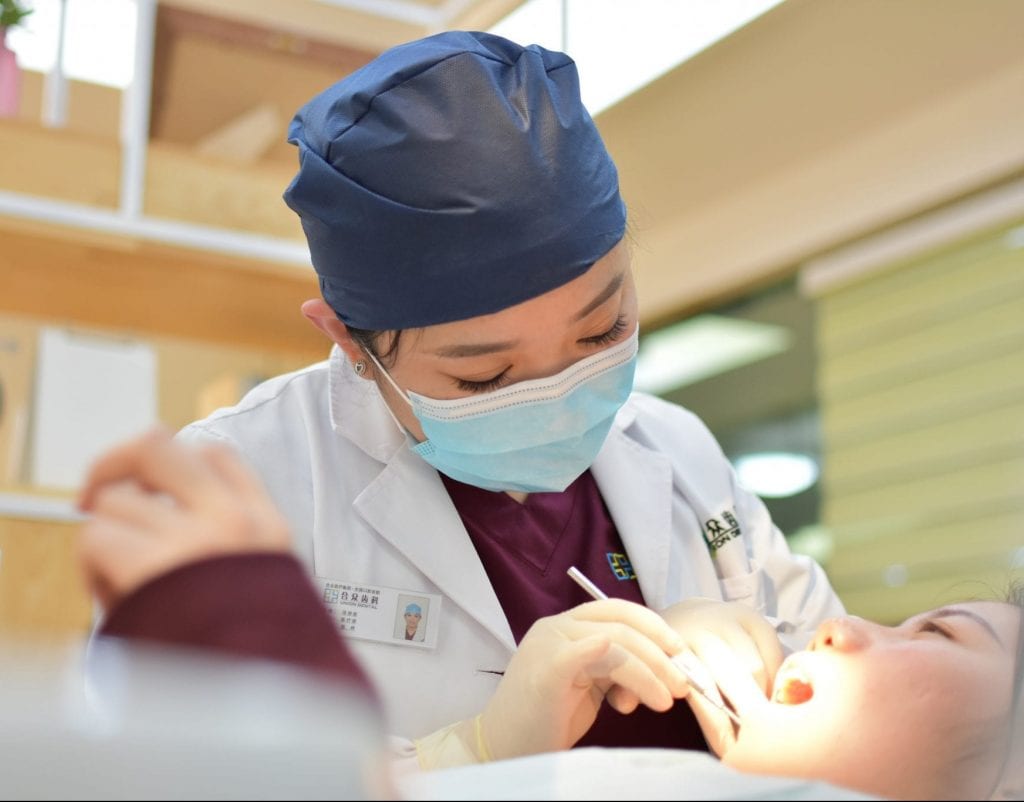Emergency Dental Care
Reliable Emergency Dental Care in Macquarie Park NSW
Dental emergencies can happen anytime, anywhere and to anyone. To make sure that we’re always there to help, WiSE Dental offers extended emergency dental care hours (10 am to 10 pm), 7 days a week. Walk-ins available, however appointments are preferred.
We understand how distressing a dental emergency can be, especially if you can’t reach a dental care clinic immediately. During a dental emergency, it is important to remain calm and act quickly within the first few minutes to prevent further damage and protect teeth until you can see a dentist.

What Does an Emergency Dentist Do?
An emergency dentist is a medical professional who specialises in treating serious emergencies that have to do with the mouth and jaw. Their priority is to treat a dental emergency quickly and effectively, ensuring that the patient’s teeth are protected. They are trained to repair cuts and injuries to the gums and even restore broken and cracked teeth.
What to Do During a Dental Emergency
Here are some of the most common dental emergencies that we see and what you should do about them.
Toothache Cause
There are several reasons why you could be experiencing severe toothache. Toothache is often caused by infection, wisdom tooth related issues or serious tooth decay.
What to do?
The best way to address toothache is to rinse the mouth thoroughly with warm, salty water. This helps reduce inflammation and kill bad bacteria in the mouth. If possible, use floss to clean the area between the teeth as it could remove debris trapped between the gums and provide relief.
If your gums are swollen, place a cold ice pack on the outside of the cheek and contact an emergency dentist for further advice.
What not to do?
Do not drink hot water or apply heat to the affected area as this can cause excessive pain. Do not apply painkillers, aspirin and other pain medication directly onto the area.
Cause
Trauma, gum disease, dead tooth, infection
Gum related problems, abscesses, excessive bleeding and swelling is most likely to be caused by traumatic injury, gum disease, death tooth or severe infection.
What to do?
If you are experiencing bleeding across your gums, we recommend flossing gently between all your teeth and rinsing the mouth with warm salty water.
If the gums are swollen, place a cold ice pack on the outside cheek and hold for 5-10 min.
If you have a large wound in your gums, place cotton cloth, a towel or gauze on the affected area and press firmly for 5-10 minutes until the bleeding stops. If the bleeding continues, contact our emergency dental clinic.
What not to do?
Do not use tissue paper to wipe blood from gums as it can stick to the affected area. Do not drink hot water or apply heat to the area as it can prevent blood clotting and burning. If you have a dental pimple or abscess, do not try to puncture or pop it. Contact an emergency dentist immediately.
Cause
Trauma, fall over, ate something hard, decay around filling
A broken tooth can be caused by a traumatic injury to the mouth, tooth decay, or even something as simple as biting down on something hard.
What to do?
The first step should be to call an emergency dentist. Rinse the mouth with lukewarm water and, if the tooth is broken or chipped, save the pieces and store them in milk or the patient’s saliva to protect the tooth. If the face or gums are swollen, use an ice pack on the outside of the cheek to manage swelling. If you are experiencing excessive bleeding, use a cotton cloth or towel and press firmly on the wound for 5-10 minutes.
What not to do?
Do not use tissue when trying to stop the bleeding because it could stick to the gums and be difficult to remove. Do not drink hot water or apply heat to the area as it can cause clotting and burning. Do not store the tooth in any other liquid other than saliva or milk as it can cause the tooth to begin eroding immediately.
Cause
Trauma, fallen and hit face on hard surface, gum disease
A dislodged or wobbly tooth can be caused by gum disease or an injury to the mouth.
What to do?
For excessive bleeding, use a towel, gauze or cotton cloth and press firmly against the wound for 5-10 minutes. Pain relieving medication can be used if the patient is in serious discomfort and an ice pack should be placed on the outside of the cheek for swelling.
What not to do?
Do not touch or try to wiggle the loose tooth with your finger or tongue. Do not use tissue as it and stick to and dry out the affected area. Do not use hot water or apply any direct heat to the area.
What to do?
If a child’s tooth has been knocked out, your dentist should check to make sure that the permanent teeth or gums have not been damaged. It is important to make sure that tooth debris is not stuck in the gums. Rinse the child’s tooth with lukewarm water and store the broken or chipped teeth in a container of milk or saliva.
If the gums or face is swollen, place a cold ice pack on the outside cheek to reduce swelling.
If the area is bleeding, place a cotton cloth, towel or gauze and press firmly on the wound for 5-10 minutes.
What not to do?
Do not use tissue when wiping blood from gum because it will stick. Do not drink hot water or apply heat at the area as it will cause blood clotting or burning sensation. Do not put water or any other liquid beside milk or patient saliva when storing a chipped tooth as it will start eroding the tooth immediately. Do not pull or remove excess gum or soft tissue from the area as it may cause further damage.
Cause
Eating something hard, braces got caught or something
Although braces are generally sturdy, eating hard food or getting something caught in the braces can sometimes cause them to break.
What to do?
If the wire of the braces is broken or irritating the gums, try bending the wire so that it is in a more comfortable position. If the bracket has fallen off, store the bracket safely and give it to the dentist for repair.
What not to do?
Do not attempt to cut the wire as it could cause the patient to choke if swallowed. Dentists use a special tool to cut dental wire safely and accurately.
If wire has penetrated deep into the gum or cheek, do not attempt to remove or pull it out.
Infection from wisdom teeth may be treated with improving oral hygiene, having the area cleaned by the dentist, or antibiotics. However, the infection may keep coming back if the wisdom teeth are not removed.
During an emergency wisdom tooth removal, a local anaesthetic will be administered to numb the area. Our understanding team is always sensitive to a patients’ needs and a sedative may also be offered to alleviate anxiety.
If the tooth has broken through the gum, a simple extraction can be performed. If it is still below the gum line, however, the dentist or oral surgeon will cut through the gum to remove a portion of the bone to get to the root. In most cases, the tooth will be cut into small pieces instead of as a whole to minimise the size of the hole, which may then be stitched up.
Emergency Wisdom Tooth Removal, NSW
WiSE Dental is open from 10 am to 10 pm, 7 days a week for dental emergencies. Contact us today if you or a loved one needs immediate dental care.
OPEN 7 DAYS A WEEK
Mon: 10:00am – 10:00pm
Tues: 10:00am – 10:00pm
Wed: 10:00am – 10:00pm
Thur: 10:00am – 10:00pm
Fri: 10:00am – 10:00pm
Sat: 10:00am – 10:00pm
Sun: 10:00am – 10:00pm
Wise Dental are accredited, our team voluntarily committed to continuously improve safety and quality for our patients’ peace of mind.

